- Some cancers are determined by genetics and can’t be avoided. But nearly half of all cancer diagnoses are linked to preventable lifestyle factors.
- Scientists are still figuring out how cancer works, but compelling evidence suggests that eating certain foods can reduce your risk of getting cancer.
- From carotenoid-rich greens like spinach and kale to fibrous foods like lentils, here’s a list of items to incorporate into your diet.
Scientists haven’t yet found a cure for cancer. But what they have discovered after decades of research is that there are certain behaviors, foods, and lifestyle choices we can make that either increase or decrease our odds of developing cancer.
Watch: Nursing Home Abuse Center
Nearly half of all cancer diagnoses are preventable, and can be avoided if we make sure not to smoke, get enough exercise, maintain a healthy weight, and eat right.
Here are 39 of the top foods that science suggests can help you boost your chances of staying cancer-free.
Fiber is a miracle worker in the body, but not for the reason you might think.
People often joke about fiber’s magical ability to keep things (ahem) moving, but ingestable roughage does much more than relieve constipation.
A February 2019 study of more than 125,000 Americans reinforced what health experts have been saying for years: Fiber helps the body stay cancer-free. After more than 24 years of study, these researchers found that people who consistently ate a fiber-rich diet were less likely to develop liver cancer.
Fiber eaters are also less likely to develop Type 2 diabetes and obesity, most likely because fiber keeps our gut microbiome healthy.
Some overlooked fiber-rich foods include raspberries, peas, barley, lentils, and chia seeds.
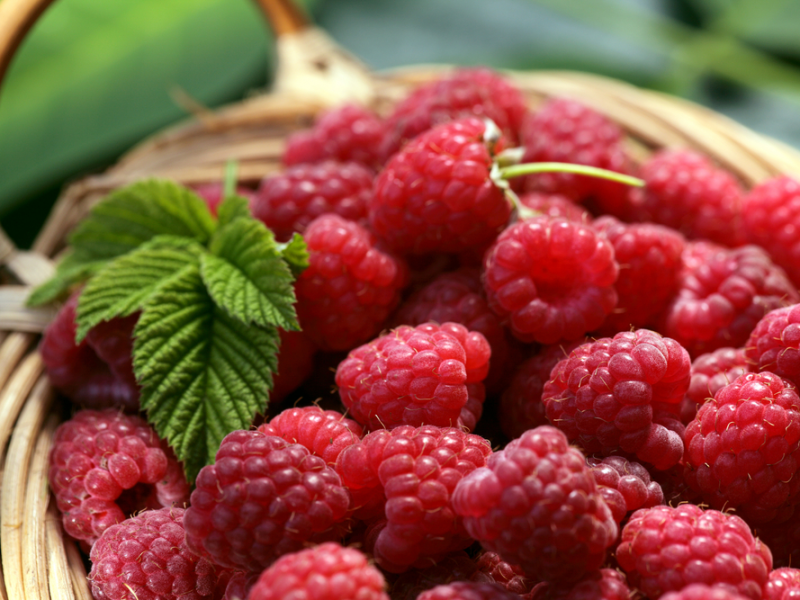
In general, whole grains, nuts, and beans all have a decent dose of fiber.
If you want to get dietary fiber from bread or pasta, make sure to choose whole grains, not the refined or processed stuff.
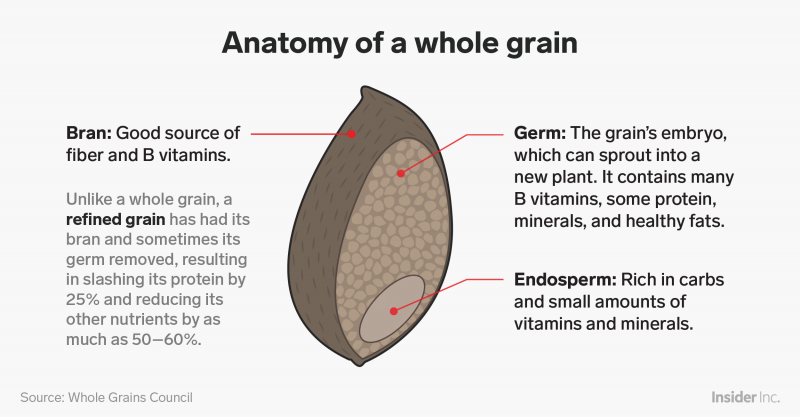
Studies suggest that people who eat more whole foods, including whole grains, are more likely to live longer, cancer-free lives than people who rely on processed foods for sustenance.
Look for breads and pastas that are labeled “100% whole wheat” or “100% whole grain.” Remember, wheat flour is only about 25% whole wheat. You can also try incorporating more barley, quinoa, Ethiopian teff, or wild rice into your meals.
Overall, plants are the best diet staple because they’re high in fiber and contain disease-fighting phytochemicals.
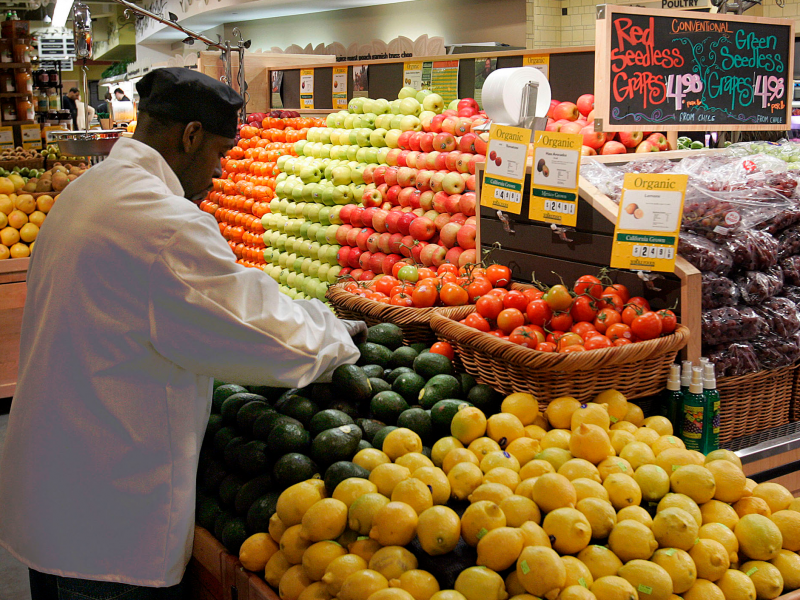 Plant chemicals are great for our health.
Plant chemicals are great for our health.
Phytochemicals are what give fruits and vegetables bright colors, odors, and flavors.
Once inside our bodies, phytochemicals help defend us against disease. They reduce inflammation, which has the potential to make cancer more likely. Plus, they act like ingestible body guards, keeping the things we eat, drink, and breathe from becoming cancer-causers in the first place, while also preventing and repairing DNA damage.
The plant chemical beta carotene, which pops up in orange and yellow produce items, is especially good for you.
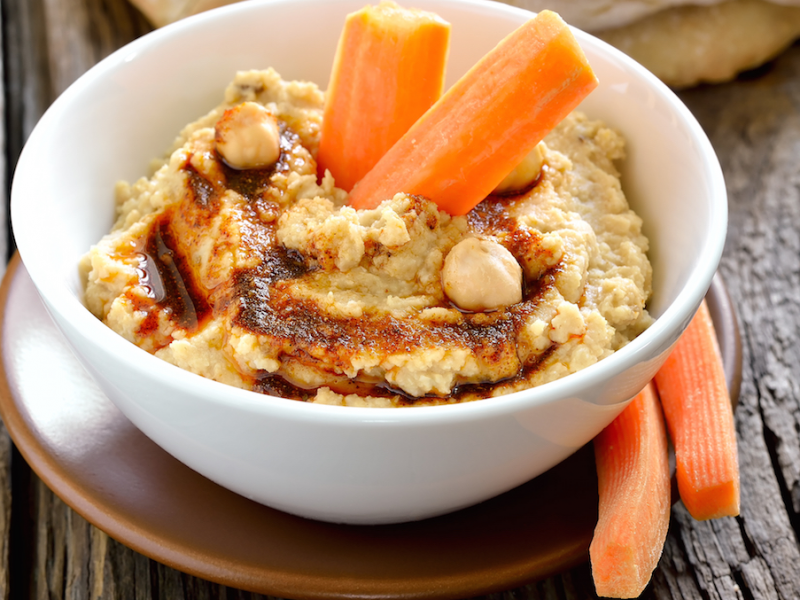
Beta carotene is found in foods like carrots and sweet potatoes. People who eat a beta carotene-rich diet have lower instances of cervical cancer and slight reductions in breast cancer risk.
Legumes like beans, lentils, and chickpeas are a great way to give your immune system a shot of zinc.
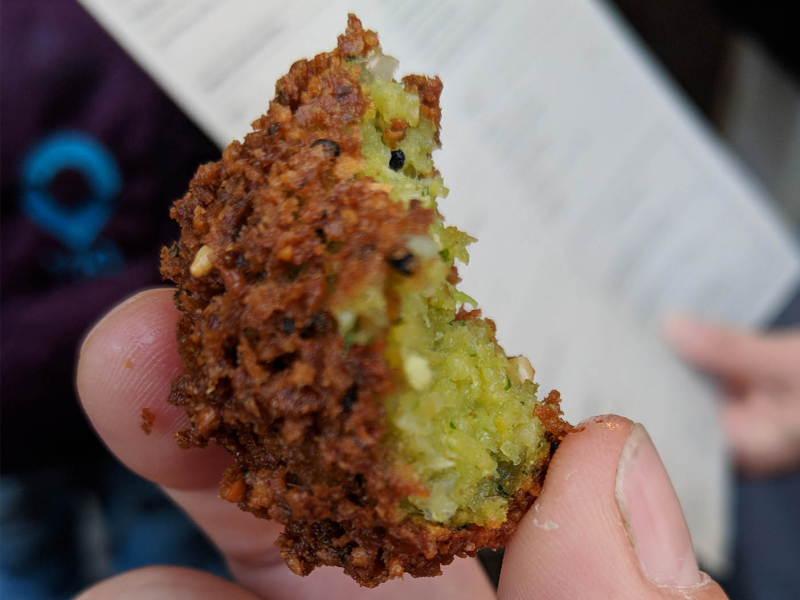
Zinc-rich items like hummus and beans feed us beneficial zinc finger proteins that are crucial for healthy DNA.
Greens like spinach and kale are a great way to take in the vitamins that keep our immune systems healthy.
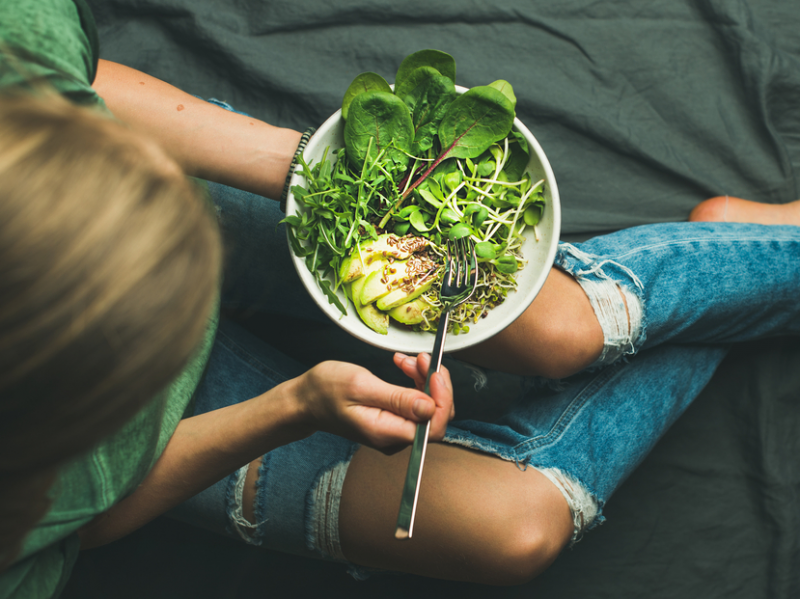
People who eat carotenoid-rich foods like dark leafy greens and sweet potatoes can convert the chemicals in those plants into nutrients like vitamin A.
Vitamin A is essential for developing healthy embryos, keeping tissues healthy, and ensuring the immune system functions properly. It’s better to eat foods rich in vitamin A and shy away from supplements, since those can lead to liver problems.
Broccoli and celery aren’t just crunchy — they’re kind of like anti-cancer defense systems for the body.
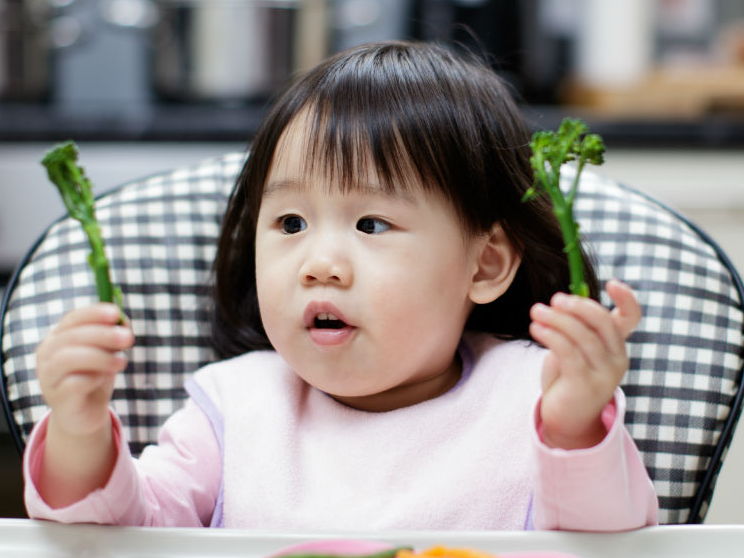
When we chop, chew, and digest cruciferous veggies like cauliflower, Brussels sprouts, cabbage, and bok choy, they break down into biologically active compounds that both protect our cells from DNA damage and kill cancer cells, at least in animal tests. Scientists are still determining if these processes work the same way in humans that they do in animals, though.
Other promising research already suggests celery can kill cancer cells in the body.
Red’s a great color for fruits and vegetables, too. Tomatoes, grapefruits, and papaya in a diet can help reduce a person’s risk of developing lung, stomach, prostate, and breast cancers.
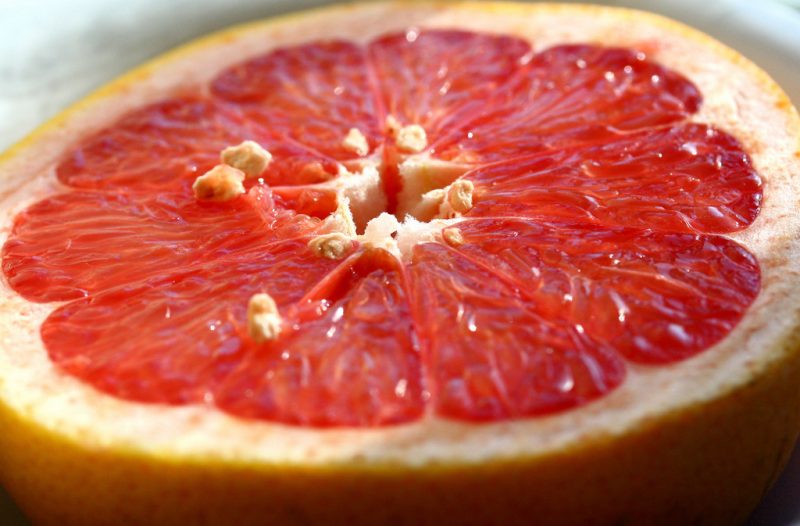
Studies suggest that eating lycopene-rich fruits and vegetables, which are generally reddish or pinkish, reduces a person’s risk of developing several kinds of cancer.
There’s a chance that it could even help provide some protection against sunburns– which can up a person’s odds of developing skin cancer– but more research on that is needed.
Iodine-rich foods like cheese help regulate our hormones, which is bad news for tumors.
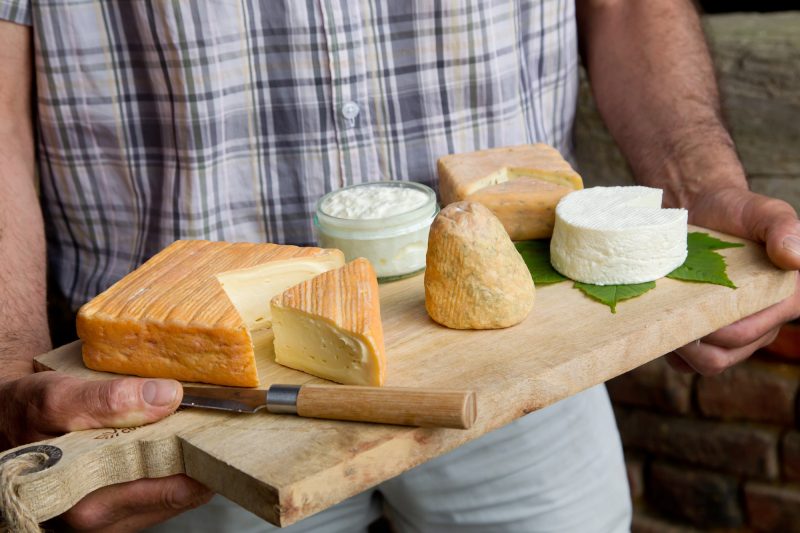
Iodine is an essential mineral: The body uses it to make thyroid hormones, which help control our metabolism. Studies suggest that having too much or too little iodine in your system can play a role in tumor growth.
Good dietary sources of iodine include: cheese, yogurt, milk, certain fish like cod, tuna, and shrimp, as well as seaweed.
Nibbling just a few nuts a day can also help reduce your risk of cancer, especially if they’re the right kind.
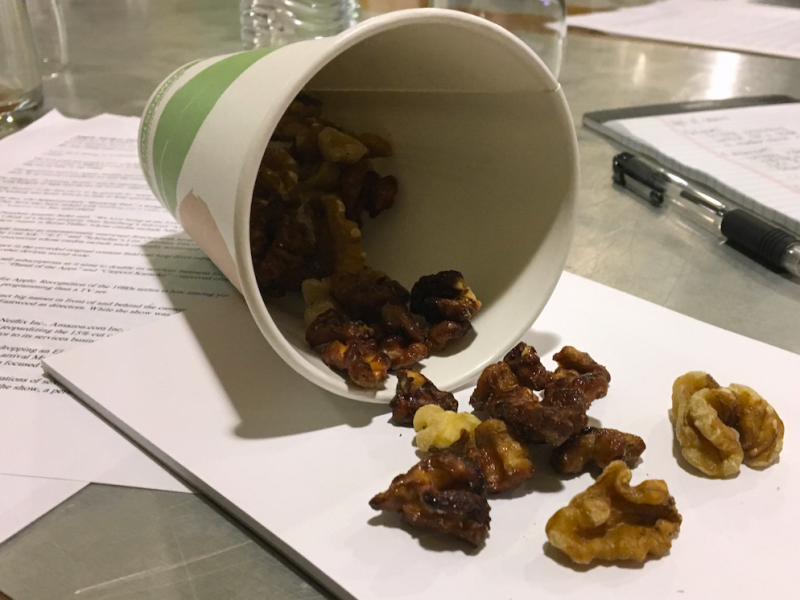
A study of more than 75,000 women in the US found that those who said they consumed more than two ounces of nuts per week had a lower risk of developing pancreatic cancer than women who rarely (if ever) opted for nutty snacks.
Some nuts appear to be more potent than others. Brazil nuts contain a hefty dose of selenium, an essential element for human health. The fatty South American tree seeds aren’t technically nuts at all (like almonds, they’re really seeds), but they still show promise in reducing people’s risk of cervical and prostate cancers. Eating just two Brazil “nuts” per day may be enough.
Like Brazil nuts, mushrooms are a good source of selenium.
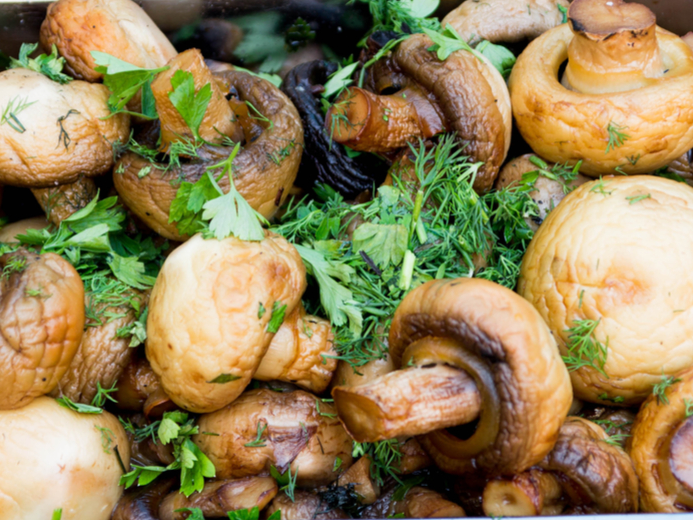
The fungi have been safely and effectively used alongside radiation and chemotherapy for three decades in Japan and China.
Scientists still want to know more about how mushrooms work in the body, but the evidence so far is compelling. Observational studies of Chinese people suggest that eating just one mushroom a day can help reduce a person’s breast cancer risk.
Turmeric is an essential curry ingredient used around the globe. Doctors think the savory spice is one of the most excellent anti-cancer tools we can eat.
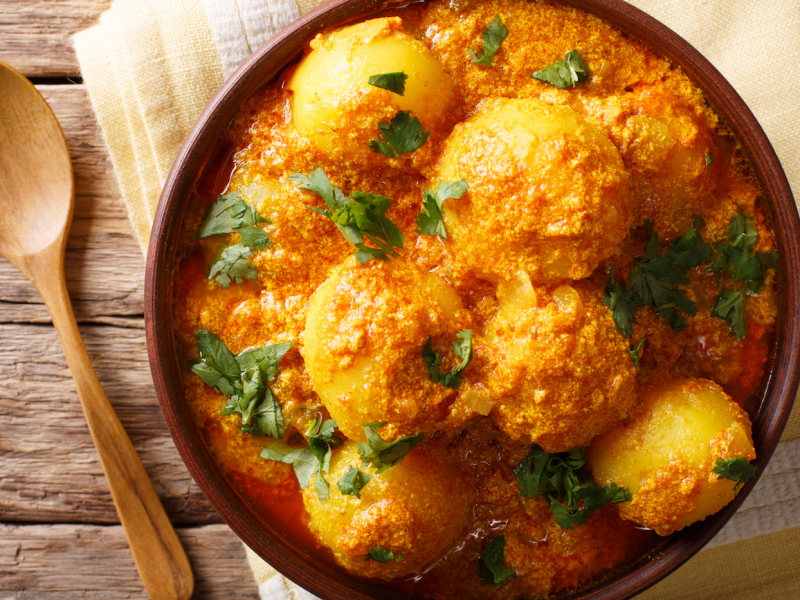
“It’s probably, to the best of my knowledge, the most potent naturally occurring anti-inflammatory,” Ajay Goel, a biophysicist who researches cancer, recently told Business Insider.
Goel’s studies in both animals and humans suggest that curcumin can help kill treatment-resistant cancer cells and may make some cancers less resistant to chemotherapy.
Where Goel is from in India, turmeric is an essential part of almost everyone’s daily diet.
“They don’t even recognize,” he said, “but it’s protecting them from a lot of disease.”
Allium vegetables like onions, shallots, leeks, and garlic do more than give us bad breath: People who eat lots of them reduce their risk of cancers of the gut.
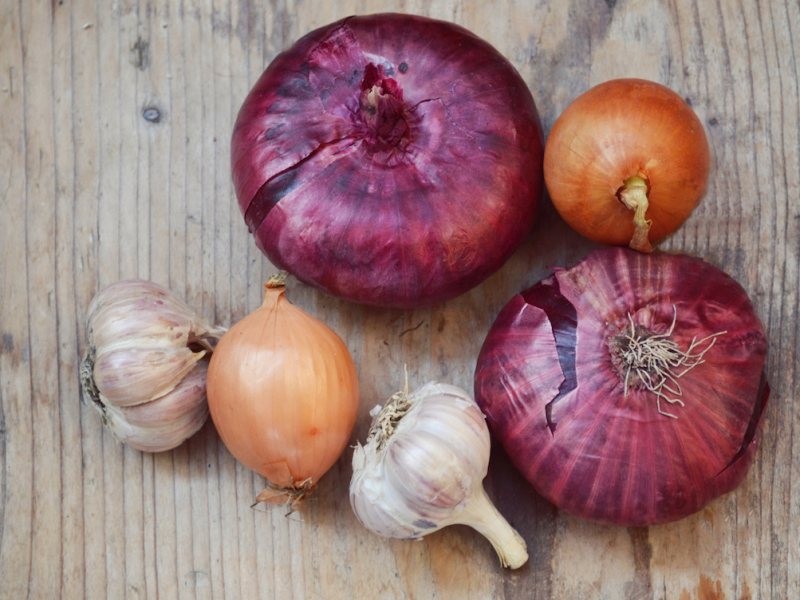 Onions and garlic.
Onions and garlic.
It’s tough to know exactly how much garlic and onions is the winning dose, because much of the research on their anti-cancer properties to date has been observational. Still, in studies conducted around the world, scientists consistently find a link between eating more garlic and onions and developing less gut cancers like colon cancer.
Some of the most recent research on this effect came in a 2019 study of over 1,600 Chinese men and women. The results showed that those who ate the most allium blooms had 79% lower odds of developing colon cancer than people who rarely enjoyed these foods.
A daily dose of coffee keeps your heart healthy and is also associated with a lower risk of certain cancers.
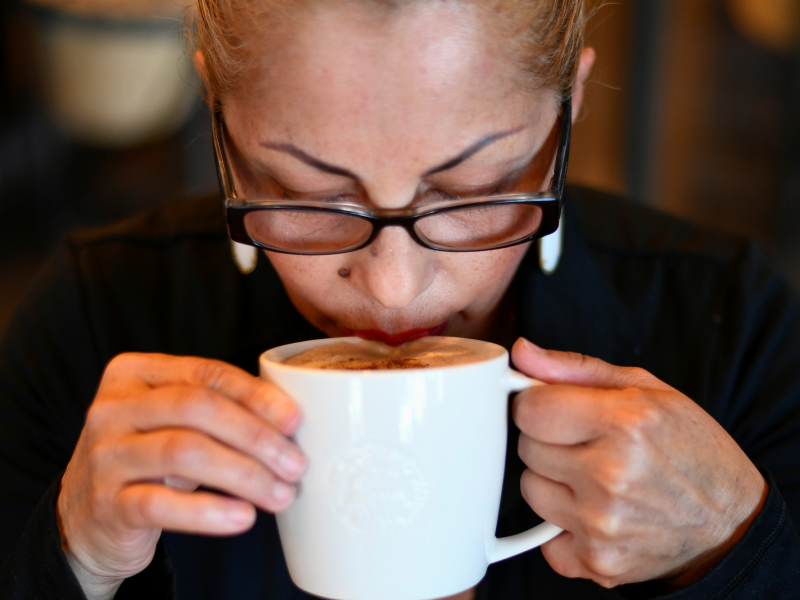
Coffee drinkers consistently have lower rates of endometrial (uterus), prostate, liver, mouth, throat, and breast cancers.
If you’re looking for a different type of brew, green tea also seems to provide an anti-cancer boost, thanks to the plant chemicals it contains.
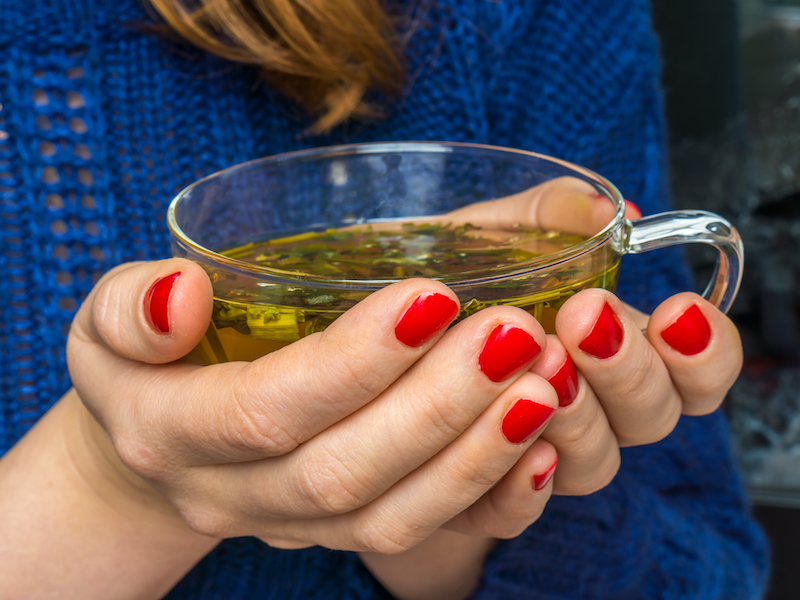
Scientists aren’t sure about the connection between tea and lower cancer risk yet, but some good evidence suggests that green tea, which is rich in polyphenols, might disturb the way cancer cells divide and multiply and slow down blood-vessel formation around tumors.
A true love for sports

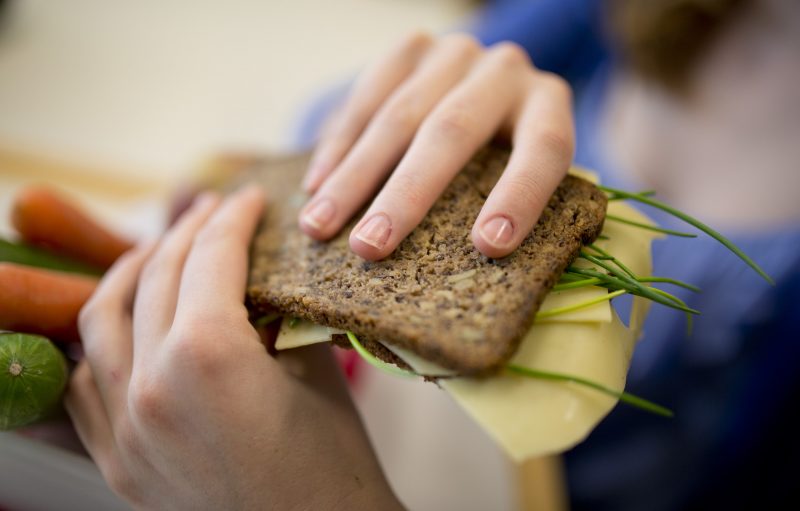
Recent Comments